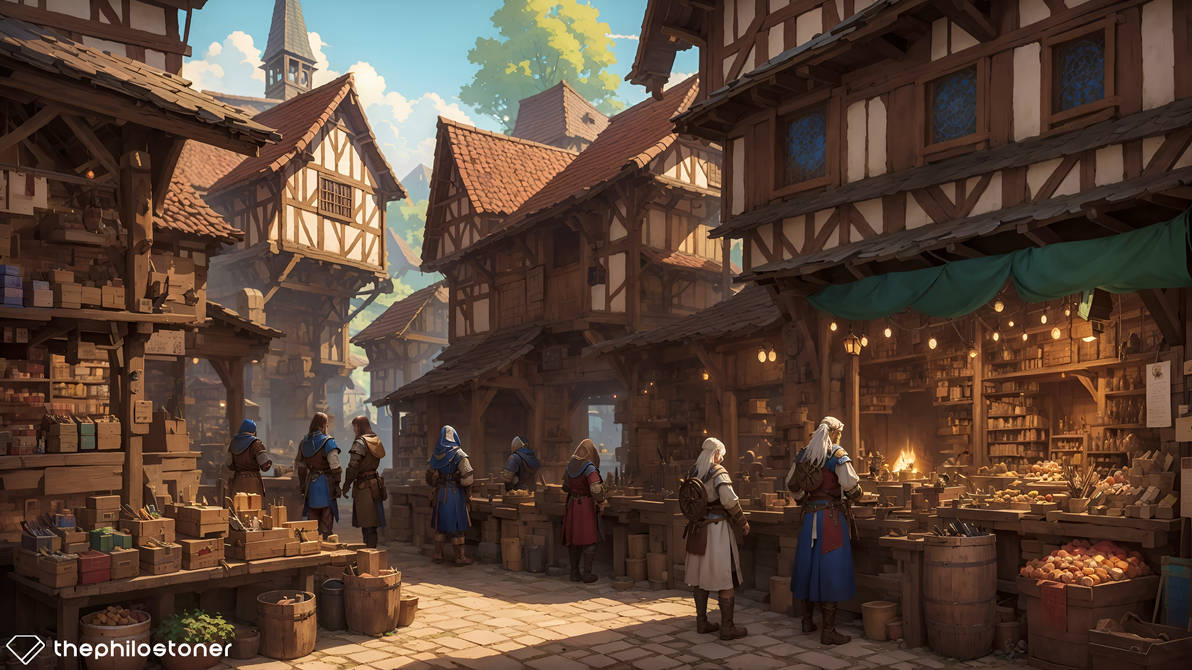
Velders re-write
by Marc SaindonVeldters – Hamlet – Population 250 (Mostly Humans) and 3000 in the surrounding countryside (Mostly Humans, some Elves) “Velders . This canton is under the protection of Gulluvia, though this does Velders little good. The Gulluvian guards fear the Abaddon Woods and do not like to travel through it to reach Velders except in large groups. Orcs, kobolds and other vile creatures make periodic raids on the small farms on the outskirts of the canton. There is only a trading post in the center of town.”
The original text is okay. Things to modify would be first adding a ‘t’ to Velders, making the word “Fieldmen” in Dutch/Flaemish (keeping with idea of Gulluvia as fantasy Belgium, and Dutch being a main language of the realm), perhaps establishing the hamlet as a fortified farm community, growing food crops like turnips and potatoes (with which they make Gulluvian Fries). The ‘t’ gets dropped in Gulluvian vernacular (the Common tongue of the peasants, which is similar to English).
While it lacks the population to gain a Charter from the Princess, the hamlet of Veldters gets a derogation to fortify itself because it is a border settlement, often raided by Orcs, Kobolds and other creatures (probably remnants of a Hulean invading force), and because it is isolated from the realm by the thick Badon Woods (changed from ‘Abbadon’ as the demonology name doesn’t fit the faerie tale theme of the module). It probably collects tolls from all caravans incoming from Glantri, and maybe even from Darokin, keeping troops busy and at their ‘Wartime’ level rather than ‘Standing’, and with a steady income.
While Veldters is an autonomous, self-governing feudal domain called Canton (the term applies to belgian administrative divisions, so it fits), it still defers to the Barony of Gulluvia. The local government could work as a triumvirate, power being split between an elected council from the peasants (running day-to-day activities), a Bailiff (managing the military) and a Lord or Lady (the aristocracy, collecting the tolls and dues, and keeping up with foreign affairs).
https://en.wikipedia.org/wiki/Belgian_nobility
The trading post offers the possibility of creating a new Gulluvian faction, a Merchant House, which could be linked with the General Stores mentioned in both N’Sau and Thorold (or “Torhold” as I changed it), thus becoming a chain of stores. “House Gouden” (placeholder name until something better is found) aspires to have power on the level of Darokinian Merchant-Princes, but is stunted a bit in its growth: the feudal system controls law-making and courts, imposes dues and tolls, while the Gnomes of Mulemorte (Dead Mule) have a guild system of miners, craftsmen and independent merchants (call them ‘the Silver Hands’). House Gouden also indulges in price gouging, which isn’t winning them support from the peasantry. Nonetheless, they have a vast fortune, and the capacity to implement various schemes, both legal and otherwise, making House Gouden technically one of the Thieves’ Guilds of Gulluvia (their main crime is smuggling) and providing an origin story for Thief PCs in your party. The Extra-Legal Experts of House Gouden don't see themselves as 'criminals', but "Followers of the Golden Rule" (a loyalty system which can be summed up as 'don't tell outsiders about our criminal activities'). The symbol of House Gouden could be a Golden Rooster on a red field.
By the time of the B3 module, attacks on settlements in Veldters have increased, with Orcs, Goblins and Kobolds unifying under the banner of a chieftain or warlord. Their raids threaten the flow of commerce with both Glantri and the rest of Gulluvia, and the security of many homesteads. PCs, either soldiers serving the local authorities or envoys of House Gouden, could be sent to Gulluvia City to ask for additional troops, only to find the barony in complete chaos.

(art from: https://www.deviantart.com/thephilostone/art/Medieval-Fantasy-Dream-5-978027317)